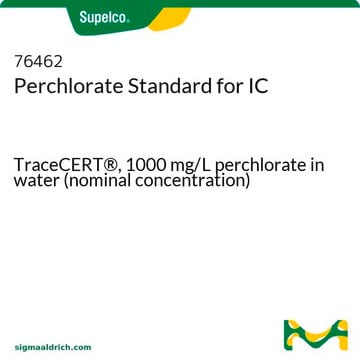86896
Tetrabutylammonium tetrafluoroborate
for electrochemical analysis, ≥99.0%
About This Item
Produits recommandés
Qualité
for electrochemical analysis
Niveau de qualité
Pureté
≥99.0% (T)
≥99.0%
Forme
crystals
Pf
155-161 °C (lit.)
159-162 °C
Solubilité
methanol: 0.1 g/mL, clear, colorless
Chaîne SMILES
F[B-](F)(F)F.CCCC[N+](CCCC)(CCCC)CCCC
InChI
1S/C16H36N.BF4/c1-5-9-13-17(14-10-6-2,15-11-7-3)16-12-8-4;2-1(3,4)5/h5-16H2,1-4H3;/q+1;-1
Clé InChI
NNZZSJSQYOFZAM-UHFFFAOYSA-N
Vous recherchez des produits similaires ? Visite Guide de comparaison des produits
Description générale
Application
Mention d'avertissement
Danger
Mentions de danger
Conseils de prudence
Classification des risques
Acute Tox. 4 Oral - Eye Dam. 1 - Skin Irrit. 2 - STOT SE 3
Organes cibles
Respiratory system
Code de la classe de stockage
11 - Combustible Solids
Classe de danger pour l'eau (WGK)
WGK 3
Point d'éclair (°F)
No data available
Point d'éclair (°C)
No data available
Équipement de protection individuelle
dust mask type N95 (US), Eyeshields, Gloves
Faites votre choix parmi les versions les plus récentes :
Déjà en possession de ce produit ?
Retrouvez la documentation relative aux produits que vous avez récemment achetés dans la Bibliothèque de documents.
Les clients ont également consulté
Notre équipe de scientifiques dispose d'une expérience dans tous les secteurs de la recherche, notamment en sciences de la vie, science des matériaux, synthèse chimique, chromatographie, analyse et dans de nombreux autres domaines..
Contacter notre Service technique








